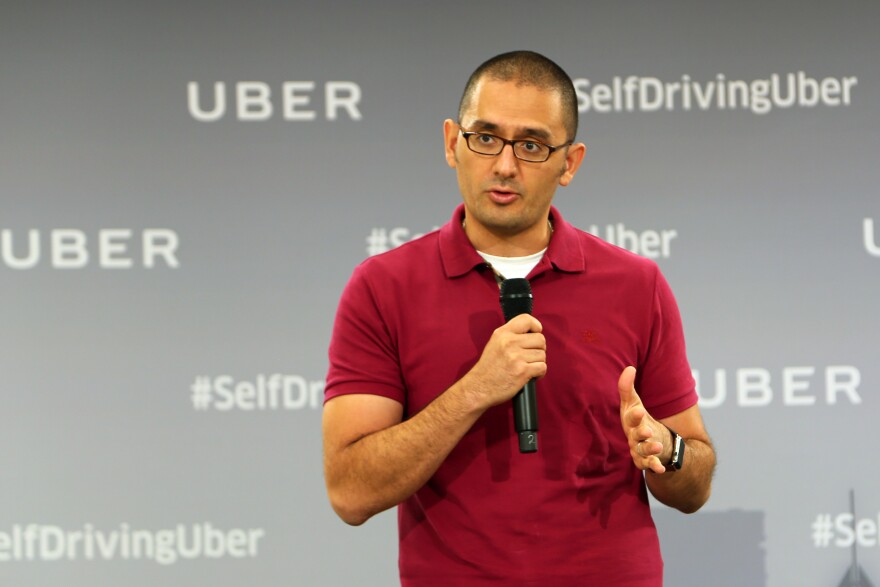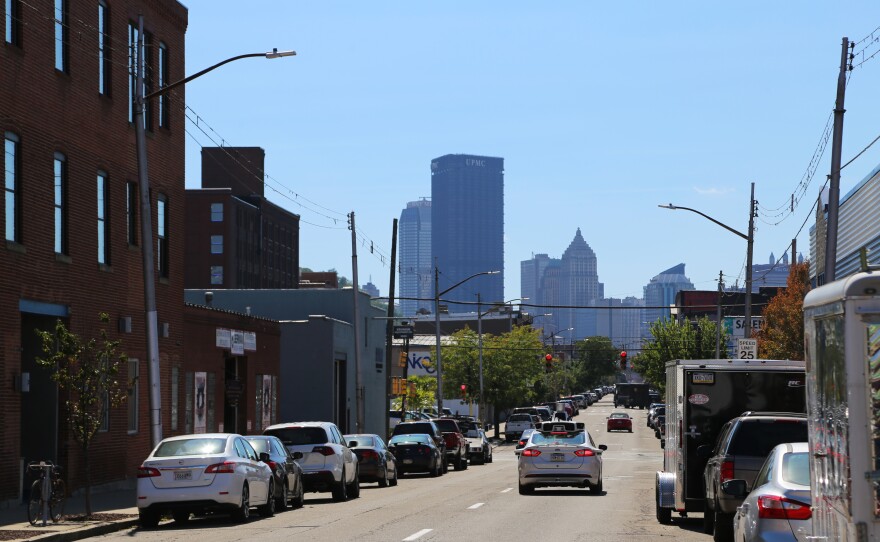The sight was striking, the aesthetic futuristic.
On the roofs of 14 self-driving Ford Fusions idling outside Uber's Advanced Technologies Center in Pittsburgh, 14 small cylindrical sensory devices spun in unison, each with 64 channels of laser beams collecting 1.4 million distance measurements per second.

The mini fleet was part of Uber’s well-oiled announcement that it will begin picking up select Pittsburgh passengers in self-driving cars on Wednesday.
Anthony Levandowski, who heads Uber’s self-driving car team, told a crowd of reporters waiting for a ride: "The most important things computers are going to do in the next 10 years is drive cars.”
Levandowski said the company’s self-driving technology, like its ride-sharing app, will make roads safer and less congested, emit fewer air pollutants and increase access to transportation.
Uber and other companies creating autonomous vehicles share a grand vision of the future, he said. Parking lots are replaced by parks, people save money and time by not owning their own cars and deaths tolls from car crashes dwindle.

But that future is still a long way off.
For now, every self-driving Fusion will be accompanied by two Uber employees, or “safety drivers” in the company’s vernacular.
When customers climb in the back of the car, they will see an iPad displaying a welcome screen. Once the ride gets going, the iPad shows a loose rendering of the surroundings, including the road, parked cars, buildings, other drivers and pedestrians.
Pittsburgh Mayor Bill Peduto has been strongly behind the Steel City's push to become the world's prime testing ground for driverless cars. 90.5 WESA's Paul Guggenheimer talked to Peduto about Uber's first fleet of autonomous vehicles deploying to customers on Wednesday.
The car’s computer makes for a very cautious driver. It travels one or two miles an hour over the speed limit and takes turns very slowly. It does not turn right on red. It doesn’t do anything that might be remotely risky.
When approaching a car parallel parking on Penn Avenue in the Strip District, the vehicle slowed down and waited, rather than changing lanes to go around it.
Later, it came across an Allegheny County public works vehicle parked in the right lane of the 9th Street Bridge, and the pilot opted into manual mode to maneuver around it, citing an "abundance of caution."

The car probably could've handled it, they said, but why chance it?
“This is early days for us in a lot of ways,” said Raffi Krikorian, director of Uber’s Advanced Technology Center. “We’re learning every single day as we get on the road and we’re driving more and more."
And Pittsburgh, he said, is the perfect place to practice. Built without a traditional city grid, the Steel City boasts diverse topography, frequent weather changes, near-constant construction and hundreds of bridges and tunnels.
“We like to call Pittsburgh the double black diamond of driving,” Krikorian said. “If we really can master driving in Pittsburgh, then we feel strongly that we have a good chance at mastering it in other cities around the world.”
Want a ride? Check out more on Uber's new self-driving car here:












